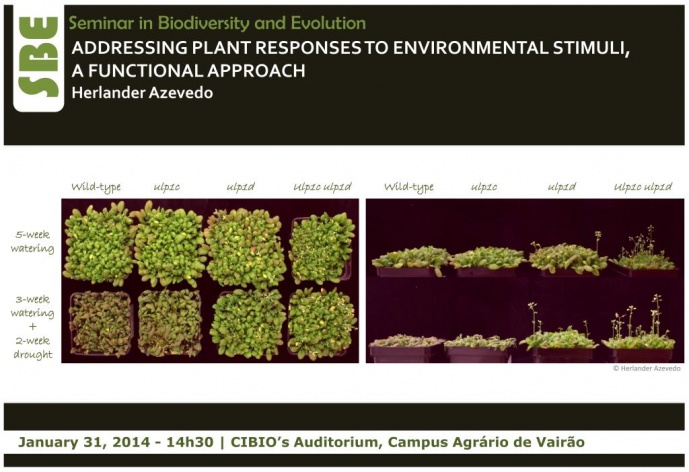ADDRESSING PLANT RESPONSES TO ENVIRONMENTAL STIMULI, A FUNCTIONAL APPROACH


Limited success in increasing crop yield is partially due to a minimal understanding about how environmental challenges affect the most fundamental processes of cellular function, with a strong impact on plant growth and development. Current research efforts are directed towards identifying novel abiotic stress determinants, using functional approaches such as the use of loss-of-function mutants, to dissect physiological resistance as a basis for future plant breeding and biotechnology. The model plant, Arabidopsis thaliana, is a particularly useful model for defining signal pathways networking and control node integration that coordinate determinant function. Meanwhile, with the onset of omics and high-throughput technologies, research on non-model plants has advanced significantly, bridging the gap between model and non-model plants. In this seminar I will make an overview of my recent work addressing the plant response to environmental stimuli, using both the model plant Arabidopsis thaliana and the national plant species-of-interest, Quercus suber (“Sobreiro”).
Herlander Azevedo received his PhD in Biology from the University of Minho in 2005. He is currently a researcher at the PlantBIO Group in CIBIO.InBIO. His research focuses on understanding the functional aspects of plant abiotic stress responses, namely the role of the post-translational modifier SUMO, using Arabidopsis thaliana as a model. His studies also focus on the stress response in forest species.
Image credits: Herlander Azevedo
